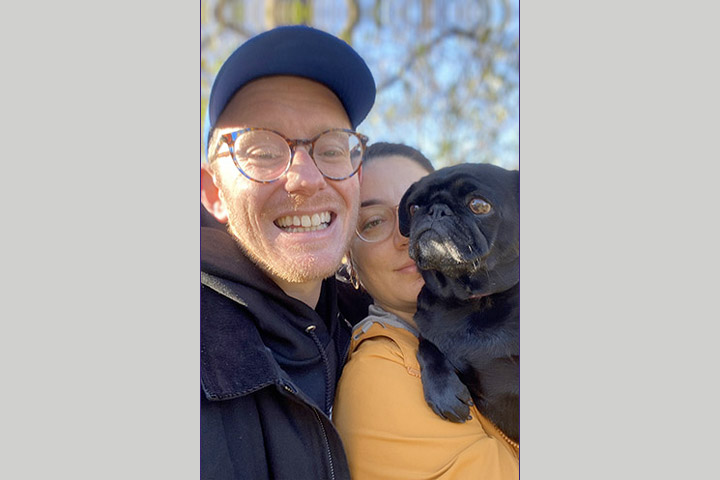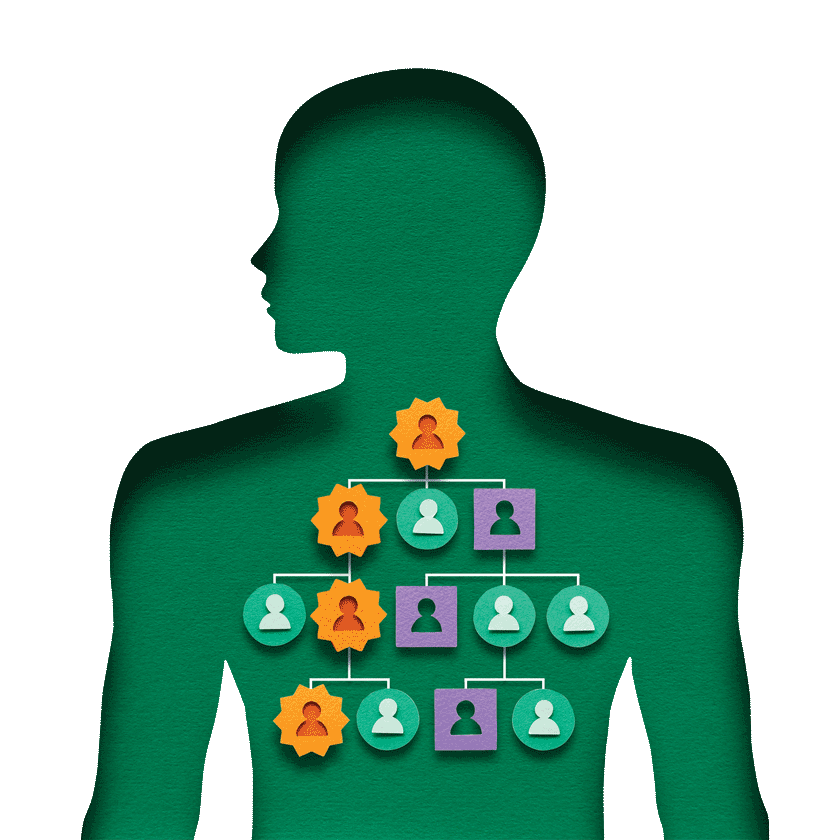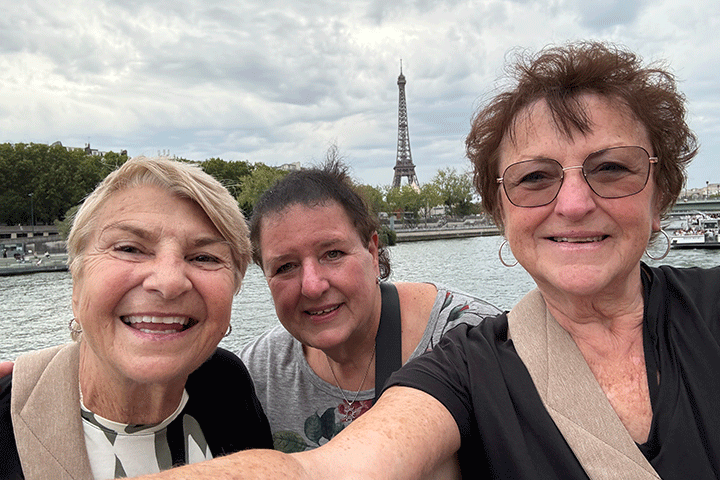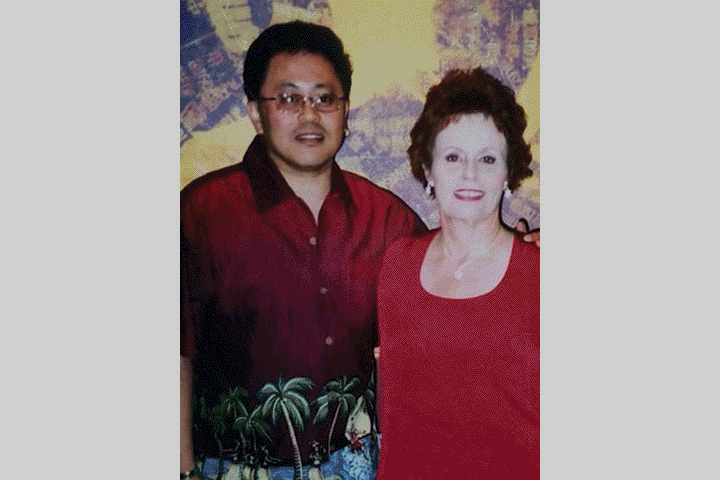Sometimes Things Get Worse Before They Get Better

- Symptoms of obstructive jaundice led to diagnosis
- Whipple attempted but metastatic disease found
- Two different types of chemotherapy to lead to second, successful Whipple
- Genetic testing confirmed BRCA2 mutation
- Maintenance with a PARP inhibitor
In January 2021, my skin began to itch terribly—it felt like torture.
I had moved to North Carolina from Michigan to help a friend with a business during the pandemic when I started having the itching and other mysterious symptoms—pale stools, dark urine, and yellowish eyes. All of these symptoms pointed to obstructive jaundice, but we didn’t know at the time exactly what was causing it. I was only 32 years old and wasn’t expecting the journey that lay ahead.
A Long Road to Diagnosis
My doctors ordered blood panels, which showed elevated levels of bilirubin, AST, ALT, alkaline phosphatases, among others. I underwent many MRIs, CTs, and endoscopic ultrasounds. Ultimately a biopsy of the common bile duct found adenocarcinoma, which would explain many of my symptoms. But I still was not officially diagnosed.
My surgeon attempted a Whipple procedure on May 12, 2021, with a suspicion of ampullary or pancreatic adenocarcinoma, although I have no recollection of them mentioning it to me at the time. My surgical oncologist, Dr. Peter Allen of Duke Health (Durham, North Carolina), had to abort the surgery because he found a tumor on the head of my pancreas with evidence of metastatic disease throughout my abdominal cavity. That’s when I recall finally being diagnosed with stage IV pancreatic adenocarcinoma. I was 32 years old, and thought my time was very limited.
The Influential BRCA2 Mutation
After the aborted surgery, my oncologist, Dr. James Abbruzzese of Duke Health, prescribed a chemo cocktail called FOLFIRINOX. After showing initial signs of progress, FOLFIRINOX was deemed ineffective. My tumor had gained ground and I was showing evidence of metastatic disease in my liver. We had to switch courses.
My doctors then put me on gemcitabine, cisplatin, and Abraxane (paclitaxel). Months of positive results encouraged my doctors to reattempt the Whipple procedure. This time the surgery was a success!
During this time I had genetic testing, which confirmed that I was a carrier of the BRCA2 mutation. This influenced the different treatments my doctors chose.
Post-Procedure Status
After I recovered from the Whipple, I did more cycles of gemcitabine, cisplatin, and Abraxane before transitioning to a PARP inhibitor as an oral form maintenance. During all of my chemotherapy, I had some nausea and fatigue, but I rarely threw up and was able to eat and maintain a healthy weight.
My most recent scan found no evidence of recurrent metastatic disease. It’s been about 18 months since I finished my treatment. In that time I’ve learned to live with the specter of recurrence haunting me, especially around the time of my quarterly scans. Overall, life is good.
Ready for a Second Act
During my treatment, I didn’t think I’d have the opportunity to fall in love again or build a family. Now I was back home in Hazel Park, Michigan—still seeing see the doctors at Duke for my treatment and follow-up—when I got a new job and moved to Atlanta. I live with the love of my life, Natalie, and our six-year-old pug, Monique. After years of believing that I would never work as a social scientist again, I am in the position of deciding what to do in my second act.
Like a lot of other patients, I’m committed to improving outcomes for those afflicted with my disease. To this end, I have volunteered with the Pancreatic Cancer Action Network (PanCAN) to speak on their behalf as a survivor. I have shared my story on the local news to build awareness on the topic of pancreatic cancer. I also recorded a podcast episode for Project Purple, and have spoken on other cancer podcasts, such as Manta Cares.
After thinking my young life was going to end quickly, the success of my treatment is allowing me to live a full and robust life while doctors continue to monitor me for signs of recurrence.
One thing I have learned and hope to impart to others: sometimes things get worse—even much worse—before they get better.






